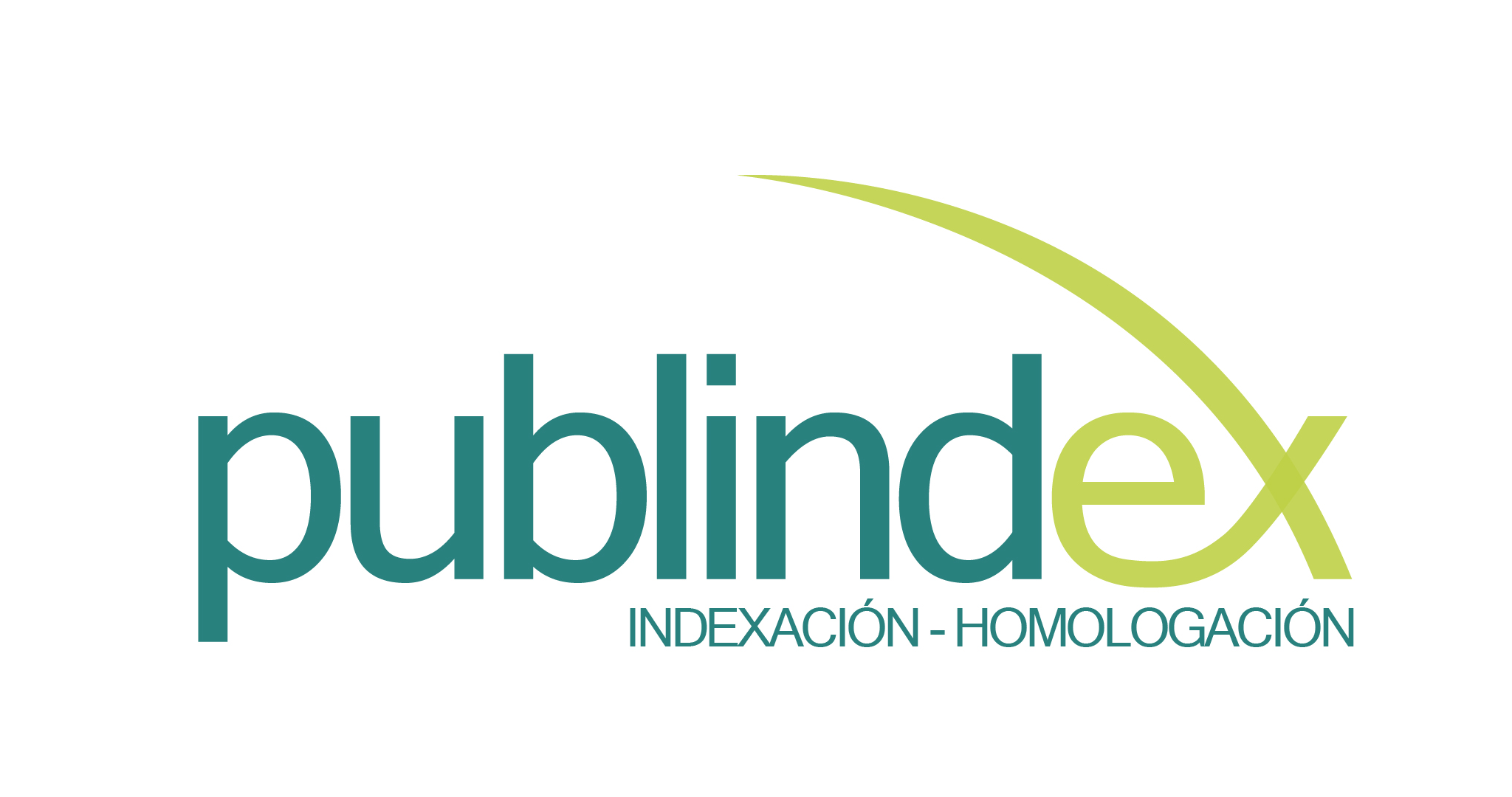Management by skills and the organizational strategic process: a brief relation from the theory
DOI:
https://doi.org/10.17981/econcuc.41.1.2020.Org.6Keywords:
Management by competences, Organizational structure, Strategic management, Organization, Management indicatorsAbstract
Management by competences within the strategic organizational process must lead decision-makers to process and analyze relevant information within and outside it, to carry out not only the current evaluation of the organization, but also its possible competitive position, to be able to foresee and decide on the direction that it will have in the medium and long term. It is for this reason that this article conceptually defines competency management as a strategic process tool for both efficient and effective operation of the organization; For which we use David (2014), Delgado (2009) and Serna (2014) as the main authors. Methodologically, a documentary investigation was carried out to explore scientific books and articles on the subject. Concluding that competency management should be implemented taking into account the strategic processes, since it provides an outline of where the organization is currently and how far it wants to go, without neglecting the use of indicators and leadership to support the process.
Downloads
References
Cabas, H. K., González, B. Y. y Hoyos, R. P. (2017). Teorías de la inteligencia y su práctica en el siglo XXI: Una revisión. Clío América, 11(22), 254–270. https://doi.org/10.21676/23897848.2445
Chávez, N. (2007). Introducción a la investigación educativa. Maracaibo: Gráficas González.
Chang, E. y Paredes, A. (2016). Pensamiento estratégico en la gestión de las tiendas de barrio. Opción, 32(13), 228–254. Disponible en https://produccioncientificaluz.org/index.php/opcion/article/view/21598
Chang, E. & Mercado-Caruso, N. (2016b). Strategic Thought and TIC as Tools of Management of Neighborhood Grocery Stores’ Owner. International Journal of Control Theory and Applications, 9(44), 175–181. Recuperado de https://serialsjournals.com/abstract/78756_ch_21_f_-_paper_93.pdf
Chumaceiro, A. (2013). Políticas Internacionales, Nacionales y Políticas Públicas Tributarias en Venezuela como promotoras de la Responsabilidad Social de las Empresas. [Tesis Doctoral]. Universidad Dr. Rafael Belloso Chacín, Maracaibo, Venezuela.
David, F. (2014). Conceptos de Administración Estratégica. México, D.F.: Prentice-Hall Hispanoamericana.
Delgado, V. (2009). El modelo de competencias laborales: base para la gestión del talento humano en las organizaciones. Económicas CUC, 30(30), 25–38. Disponible en https://revistascientificas.cuc.edu.co/economicascuc/article/view/1200
Delgado, M. (2000). Modelos de Gestión por Competencias. [Online]. Recuperado de http://sgpwe.izt.uam.mx/files/users/uami/sppc/GC_Literatura/Delgado_Domingo_KM_por_Competencias.pdf
Estela, E. y Puyo, J. (2017). Relación entre clima organizacional y el desempeño laboral de los colaboradores del área administrativa en las empresas constructoras del distrito de Tarapoto. [Trabajo de Grado]. Universidad Peruana Unión, Tarapoto, San Martin, Perú. Disponible por https://repositorio.upeu.edu.pe/bitstream/handle/UPEU/896/Enrique_tesis_Bachiller_2017.pdf?sequence=3&isAllowed=y
Fleitman, J. (2014). Negocios Exitosos. México, D.F.: McGraw Hill.
Gallego, M. (2000). Gestión Humana basada en Competencias. Contribución efectiva al logro de los objetivos organizacionales. Revista Universidad EAFIT, 36(119), 63–71. Disponible en http://publicaciones.eafit.edu.co/index.php/revista-universidad-eafit/article/view/1026
Goodstein, L. (2015). Planeación Estratégica Aplicada. México, D.F.: McGraw-Hill. Interamericana Editores.
Guajardo, G. (2015). Contabilidad Institucional. (3 ed.). México, D.F.: McGraw-Hill.
Guinart, J. (octubre, 2014). Indicadores de gestión para las entidades públicas. En, VIII Congreso Internacional del CLAD sobre la Reforma del Estado y de la Administración Pública, Escola d’Administració Pública de Catalunya, Ciudad de Panamá, Panamá.
Hernández, Z. T. (2014). Administración estratégica. México, D.F.: Patria.
Hernández, R., Fernández, C. y Baptista, P. (2010). Metodología de la Investigación (5 ed.). Mexico, D.F.: McGraw Hill Educación.
Hernández, H., Muñoz, D. y Barrios, I. (2017). Estilos gerenciales y su influencia en la generación de valor de las Instituciones Prestadoras de Salud de la Región Caribe. Económicas CUC, 38(1), 133–146. https://doi.org/10.17981/econcuc.38.1.06
Jaramillo, V. (2015). Calidad Total y Productividad. México, D.F.: Mc Graw Hill.
Kotler, P. y Amstrong, G. (2015). Fundamentos de la mercadotecnia. (4 ed.). México, D.F.: Prentice-Hall.
Mallar, M. (2010). La gestión por procesos: un enfoque de gestión eficiente. Visión de Futuro, 7(13), 1–22. Recuperado de https://revistacientifica.fce.unam.edu.ar/index.php?option=com_content&view=article&id=207:la-gestion-por-procesosun-enfoque-de-gestion-eficiente&catid=83:articulos
Medina, A., Delgado, A. y Lavado, P. (2012). Fundamentos de un sistema de gestión humana por competencias para soportar la estrategia organizacional en una pyme del sector de la industria de las artes gráficas en Cali (Colombia). Estudios Gerenciales, 28(122), 121–138. https://doi.org/10.1016/S0123-5923(12)70197-3
Münch, L. y García, J. (2014). Fundamentos de Administración. México, D.F.: Trillas.
Olascoaga, A. (octubre 29, 2015). Requerimiento de un sistema de indicadores de gestión. Close-Up International, [Online]. Recuperado de http://closeupinternational.mx/blog/?p=84
Palomo, M. (2010). Gestión por competencias y talento. Madrid: ESIC.
Paredes-Chacín, J. (2017). Planificación financiera ante la perspectiva organizacional en empresas cementeras del estado Zulia-Venezuela. Económicas CUC, 38(1), 105–132. https://doi.org/10.17981/econcuc.38.1.05
Rodríguez-González, I., González-González, A., Noy-Viamontes, P. y Pérez-Sotolongo, S. (2012). Metodología de Diseño Organizacional integrando enfoque a procesos y competencias. Ingenieria Industrial, 33(2), 188–199. Disponible en http://rii.cujae.edu.cu/index.php/revistaind/article/view/449
Sallenave, J. P. (2014). Gerencia y Planeación Estratégica. Bogotá, D.C.: Norma.
Serna, H. (2014). Gerencia Estratégica (6 ed.). Bogotá, D.C.: 3R Editores.
Thompson, A. y Strickland, A. (2015). Administración Estratégica. México, D.F.: McGraw-Hill, Interamericana.

Published
How to Cite
Issue
Section
License
Copyright (c) 2020 Alma Luisa Fonseca Mendoza, Néstor José Monterrosa López, Danny Daniel López Juvinao

This work is licensed under a Creative Commons Attribution-NonCommercial-NoDerivatives 4.0 International License.
You are free to:
- Share — copy and redistribute the material in any medium or format
- The licensor cannot revoke these freedoms as long as you follow the license terms.
Under the following terms:
- Attribution — You must give appropriate credit , provide a link to the license, and indicate if changes were made . You may do so in any reasonable manner, but not in any way that suggests the licensor endorses you or your use.
- NonCommercial — You may not use the material for commercial purposes .
- NoDerivatives — If you remix, transform, or build upon the material, you may not distribute the modified material.
- No additional restrictions — You may not apply legal terms or technological measures that legally restrict others from doing anything the license permits.

 English
English
 Español (España)
Español (España)














